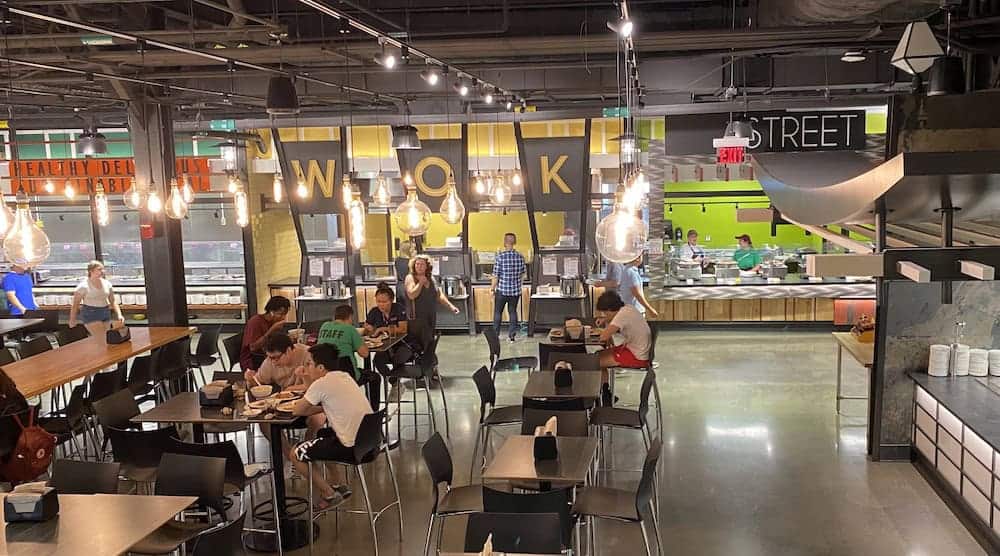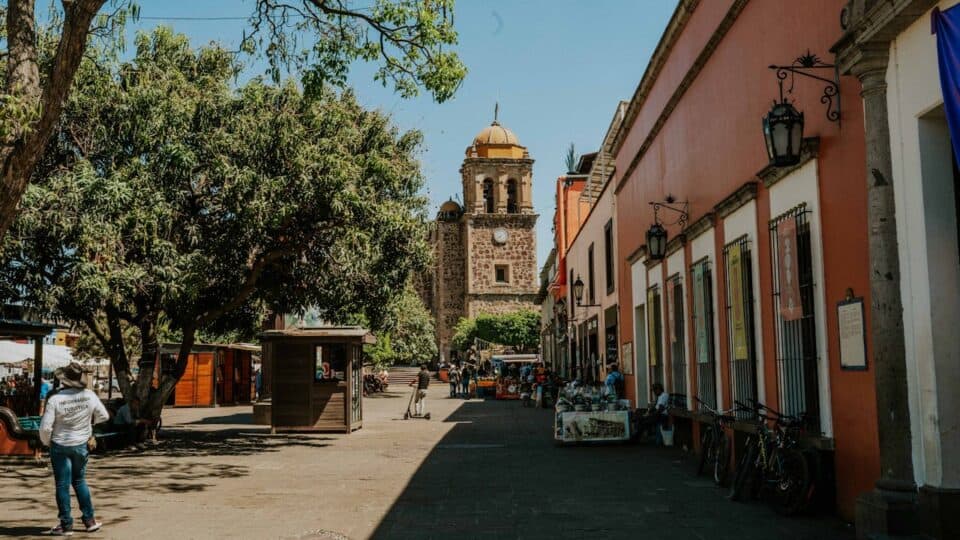For the sixth consecutive year, the University of Massachusetts Amherst has been given the ranking of best campus food in the US according to the Princeton Review. UMass Culinary directors recently highlighted the research they believe attributes to their top rank.
As well, in speaking with The PIE News, they highlighted importance of the connection between culinary, culture, and community, particularly as it relates to international students.
“Food plays a role in honouring culture. We can connect around food. [UMass] is passionate about creating this engagement, and this community, around food. And in doing so, we also promote student success,” Garett DiStefano, director of dining told The PIE.
Executive director of auxiliary enterprises Ken Toong said their main audience of Gen-Z students are extremely diverse. “They want quality, variety, and convenience,” Toong asserted. He also mentioned the emphasis many students place upon climate change. Adding that UMass supports New England farmers to the tune over $5 million per year.
UMass director of culinary excellence Alexander Ong shared the organisation’s mantra with The PIE. “Our mantra is ‘Healthy, Sustainable and Delicious.’ We work really hard to make sure our global flavours are true and authentic. We know our dining commons are a place of gathering for our student community. Our food acts as a conduit to let them engage with each other and start a conversation.”
Indeed, student voice plays a significant role in all aspects of the culinary experience at UMass. Not only do culinary staff regularly survey students through informal polling on social media as well as through formal IRB studies, but also, on most days, they eat with students in one of the university’s many dining commons.
“You can’t be afraid to get criticism from students because that’s an opportunity to really learn and develop”
They ask students what they enjoy most (sushi is the favourite, with over 5,000 rolls per day) as well as about what could be improved.
DiStefano asserted, “You can’t be afraid to get criticism from students because that’s an opportunity to really learn and develop.” He referenced the one quarter of the population in motion each year. “It provides for a rich resource. It gets back to our passion to serve and our desire to continue to connect with the student population.”
Nicole Alvarez, a BBA candidate at the university’s Isenberg School of Management told The PIE she truly feels that sense of connection that is fostered through the culinary experience at UMass.
“It feeds not only my appetite, but also my culture and identity,” she stated.
Alvarez recalled a few weeks into her freshman year when she began feeling the stress of college and longing for her homeland. “I went to the dining common where they were serving chicken congee. My Chinese family calls it jook and it’s a comfort breakfast soup.
“It’s typically something my mother would make out of leftovers, so I was not expecting it at all. I really felt seen by UMass Dining. They really understand their students and eating this bowl made me feel connected to home for the first time since moving away,” Alvarez added.
“Providing access to the ‘food of home’ from many cultures helps students stay connected to their roots”
Ong explicated on this theme stating, “When we feature our cultural menus, students from that region are happy because they are enjoying food from their homeland. We may not be able to take all our students on a world tour, but we strive to create a global cuisine tour through the food and tell the story behind the food.”
Likewise, UMass director of international programs and vice provost for global affairs Kalpen Trivedi referenced celebrity chef and philanthropist Jose Andres in a recent conversation with The PIE, noting Andres’ quote “the power of food to evoke memory, to bring people together.”
“The thought and care that underpins the work of [Toong] and [DiStefano] and their teams is crucial to our work of building communities of belonging and care on campus. Providing access to the ‘food of home’ from many cultures and communities not only helps students stay connected to their roots but also helps share those traditions with others from different origins,” Trevedi added.
Garrett said about 83% of students indicate that their UMass dining experience contributes to their sense of belonging to the university~ a number which has been remained steady over the past six years. “It’s beyond just serving food,” he argued.
“It has to do with building all-encompassing relationships and continuing to connect with the stakeholders, the campus community, the nation, and the world as a whole. And that’s the opportunity we get to do on a daily basis.”










